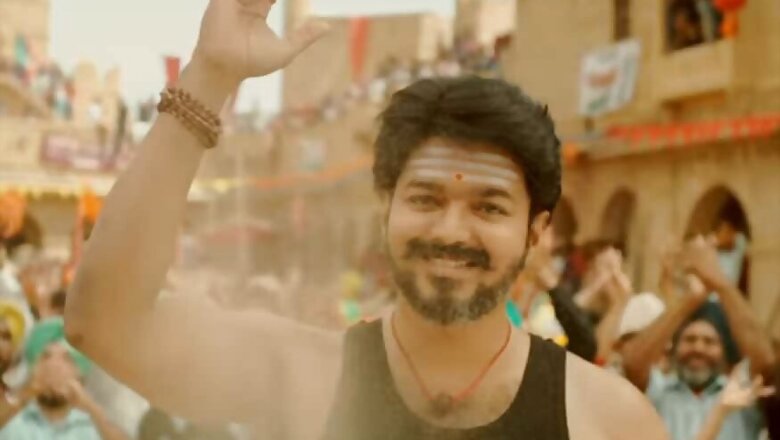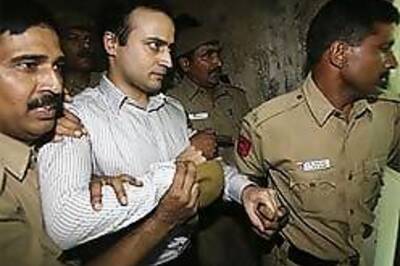
views
Director: Atlee
Cast: Vijay, Kajal Aggarwal, Samantha Akkineni
In Mersal, Vijay goes after bad doctors armed with Tamil pride, politically loaded dialogues and a stratospheric moral highground
Vettri (Vijay with rippling muscles) can flick playing cards that carry the lethality of a sharpened knife; his magical contraptions do not stop defying logic even before a sophisticated audience – everything is part of an elaborate plan to plunge a long sword into the heart of an Indian doctor who is the symbol of corporate healthcare centres that put money over medical service.
The beginning sequences of Mersal (loosely translates to an adjective meaning jaw-droppingly amazing) show Vetri as a skilled magician who kidnaps four people in the corporate Hospital circuit. He allows himself to get caught to narrate to the police the story of a young girl whose life could have been saved but for profit-chasing bad doctors.
Alongside, runs the story of Maran (Vijay again), a seemingly soft-spoken doctor who takes next to nothing for his services and lives in an shabbily furnished apartment to underscore how little a doctor can earn if he takes his profession as service to society.
The story progresses, with comedy veteran Vadivelu proving merely a shimmer of his former form, and the core unravels when Daniel Arockiaraj (skillfully essayed by SJ Suryah) arrives to investigate why his mate Arjunan was killed gruesomely at a magic show(Vetri's handiwork).
The audience gets the full picture when Vetri and Maran are identified as the sons of Thalapathy Vetrimaran (Vijay again, with grey flecks in a wispy beard), a post-interval flashback character who helps build a hospital in a hinterland town off Madurai. Suryah lands there as the suave doctor (sideburns that reach the chin and an evil smile) . He reveals his intentions to mint money and does a C-Section where a normal delivery would have sufficed. There is an anaesthesia overdose, Thalapathy loses his wife and fights Suryah, who stabs him in the back at the end of a tiring action scene.
The climax is about how Suryah faces the metaphoric Frankenstein's monster, two in fact - Vetri and Maran (Is a sibling born after years, identical?)
The movie is good in parts -- Atlee the director does evocative flashbacks. The scenes where Thalapathy controls his anxiety when his wife (Nithya Menen) struggles to deliver Vetri are commendable. The "Alaporan Thamizhan" song lands in good timing to drum up racial pride. The negatives are: a few lame dialogues, logical contradictions and frequent song sequences.
The takeaway is political. Vijay is asked by Sathyaraj ,a cop: "Are you a convict, a revolutionary, or the leader of a race?" Vijay questions the rationale behind knocking liquor off the GST list, the obsessions with digital payments, and the freebie culture in Tamil Nadu In the song Alaporan Thamizhan, it's about saving the bulls through Jallikattu.
Running as an undercurrent all along the film is the idolisation of yesteryear superstar and AIADMK founder MG Ramachandran. In one scene, Thalapathy storms into a movie hall to grab hold of a thug; in the background is MGR doing the same on screen. The message is not lost on anyone.
In sum, the three-hour movie isn't really nail-biting. But if actor Vijay were to enter politics someday, you cannot complain you never had a clue; unless you hadn't watched Mersal.
Rating: 3/5

















Comments
0 comment